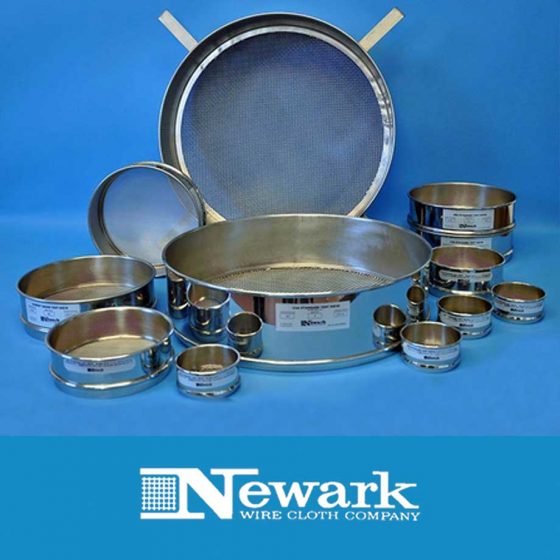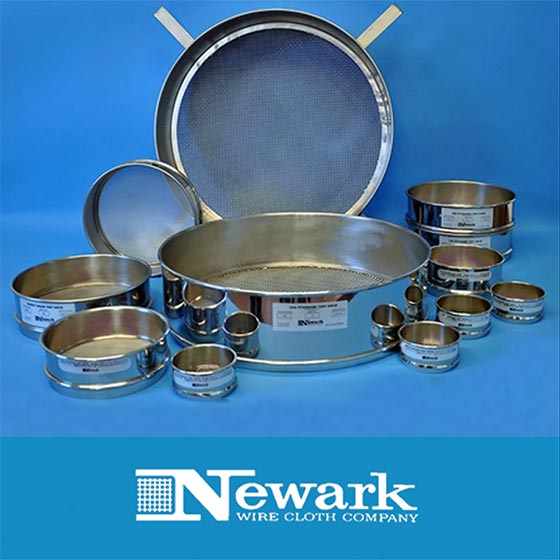The importance of commercial sieves is generally not on most people’s minds. Yet the production critical role of industrial sieves, filters and strainers cannot be understated.
Filtering the facts
According to the U.S. Department of Agriculture, in 2014 alone consumers, businesses, and government entities spent $1.46 trillion on food and beverage products. Similarly, in 2016 more than $4 trillion was spent on prescription drugs. All of these consumables are required to be filtered, strained or run through sieves. Consider these U.S. food standards:
- Section 402(a)(3) of the Food, Drug and Cosmetic Act prohibits the distribution of foods that may contain repulsive matter, such as insects, hair or rodent droppings.
- The FDA considers a product contaminated if it contains a hard or sharp foreign object 7 mm to 25 mm in length in ready-to-eat products.
- The U.S. Department of Agriculture concluded that bone particles less than one cm are not a safety hazard; particles one to two cm are low risk; and particles greater than two cm are a potential safety hazard and may cause injury.
The need for filter, sieve, and strainer technology to safeguard industrial sanitation and product hygiene is clear.
Strained, not stirred
Test sieves, filters, and strainers are found across a wide variety of industries processing an equally wide range of products. This is just a short list of examples:
- Canning companies – soups, jellies
- Beverage and juice processing plants – juices, sodas
- Dairy processing plants – ice cream, cheese, butter, milk
- Food manufacturers – salad dressing, ketchup, mustard, mayonnaise
- Meat processing plants – hot dogs
- Pharmaceutical companies – toothpaste, cosmetics, prescription and over-the-counter drugs
Every day, millions of consumers choose products that have been through a filter, sieve or strainer. Chocolate must be quality inspected at every transition point to best prevent contamination. Cereal manufacturers want to remove oversized and undersized pieces for a more consistent product while high quality citrus juice requires separating the pulp, seeds and peel membrane.

Sifting for the perfect pill
Pharmaceutical manufacturing companies use sieve filter systems to efficiently prevent contamination, ensure their products are safe for public consumption, and adhere to occupational exposure limits for employees. There are two primary types of sieving: safety screening and grading.
- Safety screening – This facilitates the correct quality of pharmaceutical powders by removing contaminants like pieces of packaging and personal protective equipment.
- Grading – This process simply sorts different sized powder particles in preparation for further processing into tablets.
Sieves are a critical part of the production process. Recalling a pharmaceutical product due to quality defects or safety issues can damage the reputation and bottom line of any manufacturer.
Industrial Sieves: breaking it all down
Sieves are manufactured from durable stainless steel (316L) although other corrosion resistant alloys can be used for handling highly corrosive fluids. Polishing them to a very low surface roughness provides excellent throughput and makes them extremely easy to clean. Sieves are broken down into three filtering categories:
- Coarse Straining – for large particles
- Medium Straining – for particles between 75 – 1905 microns
- Filtration – for the smallest particles down to 5 microns
For particles 500 microns and below, ultrasonic frequencies sent through the sieve mesh prevent particles from blinding or blocking it. Blocking reduces the useful screening area with a resultant loss of capacity.
Sieves: putting it back together
To summarize the key points about filters, strainers and sieves:
- Sieves are critical in today’s pharmaceutical, food and beverage industries.
- All food production uses some form of filter, sieve or industrial food strainer.
- Pharmaceuticals depend on various types of sieves for product purity and hygiene.
SaniClean Strainers, a Newark Wire brand, manufactures a complete line of industrial sanitary strainers, industrial sieve shakers, assemblies, replacement parts, and filter media suitable for a wide range of applications and capacities. SaniClean Strainers are easy to clean and ruggedly built to withstand the most demanding production cycles. Contact them today to find out more or for any help on your next filtration project.

